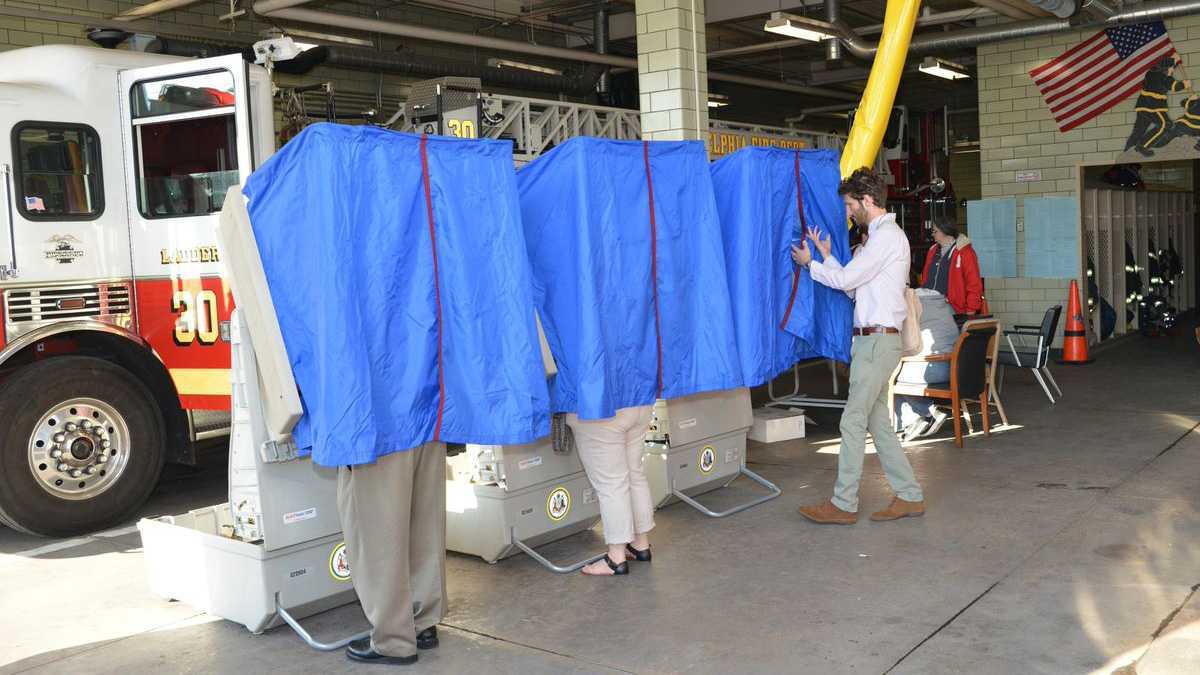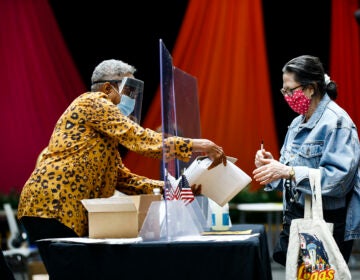People with dementia entitled to the dignity of voting

(NewsWorks file art)
As the 2016 Election approaches, the right to vote will be a deciding factor in the outcome. While courts are over-turning racially motivated voter ID laws, the GOP is fighting back, appealing these rulings. But what about the 5.4 million Americans with dementia?
According to research published in Neurology (April 9, 2002)*, people with dementia can vote under certain conditions. Researchers said that the individual doesn’t have to comprehend the complexities of the candidates’ platforms — and, frankly, who does? — or even remember the candidates’ names. They only needed to answer the following questions:
- Do you want to vote in the next presidential election?
- Do you want to vote for the Democrat or Republican candidate?
- Do you understand how your vote will help choose the next president?
I understand that the word “dementia” frightens and confuses people. (They may even joke that one or both of the candidates is already suffering from the illness.) However, there are many different types of dementia, not all of which are realted to Alzheimer’s and each type progresses at its own speed.
In 2004, as the country became polarized by the prospect of either another Bush term or putting John Kerry in the White House, I was the primary caretaker of my 88-year-old mother who had been diagnosed with dementia three years earlier. There was so much that she could no longer do, but to my surprise, voting was still an option.
Mom answered all three questions without hesitation. When I asked which party she wished to vote for, she snapped back, “I’ve been a Democrat my entire life!”
For some people, a diagnosis of dementia means an eventual inability to speak or to reason. This is the horror I had anticipated. It never happened. My mother spoke in full, coherent sentences until the very end. Her memory was gone. Not her intelligence. Or political allegiance.
That is the oddity of dementia. At times, Mom was as lucid as a congressman. If not more so. Case in point. A year earlier, when the headlines screamed “Shock and Awe” and displayed photos of Baghdad in flames, I was concerned that Mom, who still cherished her subscription to the Inquirer, would mistakenly think bombs were falling in Philadelphia.
“This is not happening here,” I said, “This is on the other side of the world. The president declared war and sent American soldiers to invade Iraq.”
Mom’s brow puckered with concern. “Easy for him to do, sitting in the White House, sending young boys off to die,” she said, summing up the situation with more political acumen and compassion than most TV news commentators. But her memory was gone.
“Your father’s been asking about you,” she’d say.
“Oh?” I’d respond, having learned that it was best not to remind her that Dad had died 10 years prior. She would always tell me that he “can’t wait” to see me, which I found both alarming and somehow comforting. That is the oddity and tragedy of dementia. It took away my mother’s memory, but not her empathy, dazzling smile, or kind heart.
She lived in a nursing home in Northeast Philly. I conferred with the staff to find out how voting would take place. I was told that Mom would receive an early mail-in ballot. She would not have to deal with the confusion of a voting booth — which occasionally baffled even me. I would be allowed to assist her in filling out the ballot, as long as I did not make any choices for her.
This is the grey area that continues to cause controversy. On one side, people fear that those suffering from dementia or Alzheimer’s disease could be victims of voter fraud by having their mail-in ballots filled out by someone else. On the other hand, it would be unfair and, in many cases, illegal, to deny them the right to vote, as long as they understand their options and want to vote.
Unfortunately, for Mom, her candidate lost. Even so, I felt that the voting process restored a sense of dignity, of personhood, to my mother when so much else had conspired to take it away.
At the age of 91, her last words were “The world is so beautiful.”
Yes, it is. As long as we respect, value and rigorously defend every citizen’s right to participate in our elections.
—
* An updated 2006 version of the Neurology study can be found online.
WHYY is your source for fact-based, in-depth journalism and information. As a nonprofit organization, we rely on financial support from readers like you. Please give today.




